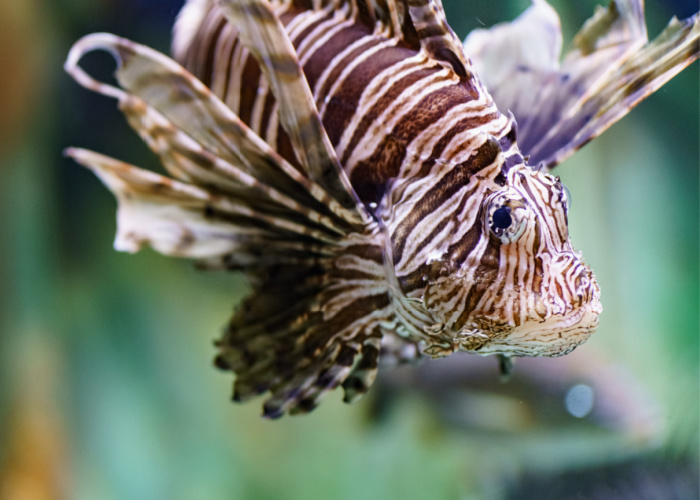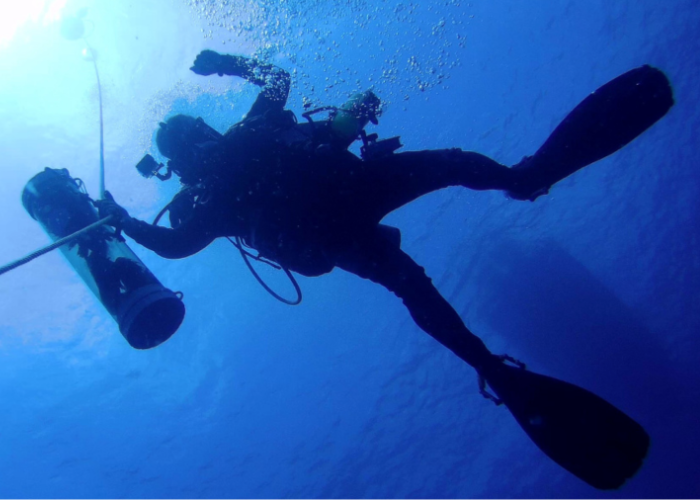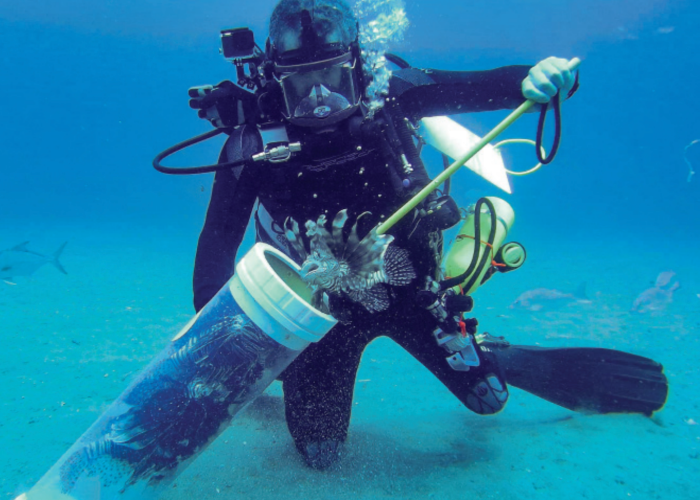Don’t be fooled by their colorful appearance — behind the lionfish’s beautiful exterior lie defense mechanisms that can wreak havoc on native species, like snapper, grouper, sea bass, spadefish and more. These invaders from the Pacific sport venomous spines, a voracious appetite with stomachs that can expand 30 times their normal size and zero natural predators in our Atlantic waters.
As their population grew, so did discussions on how to effectively remove them. Lionfish don’t respond to traditional fishing methods using rods and reels; they stick close to structures they inhabit and typically don’t seek out prey outside their line of sight. Because of the depths they inhabit and their spiny exterior, nets have also proven to be ineffective, as their spines can split them open.
So if we can’t hook or net them, how do we get them?
 The invasive lionfish.
The invasive lionfish.The dive community has been working for years on removing this invasive species using a particular set of tools and techniques.
The most common way of removing lionfish is by targeted spearfishing. Divers head out to underwater habitats donning spears, safety gloves and a Zookeeper — a specialized clear tube with a flexible, funnel-like top — to contain the lionfish. When divers spot a lionfish, they swim close enough to spear them and subsequently place them into the tube, which offers protection from the lionfish’s sharp spines as the diver ascends to the surface. This has proven to be the most successful method for culling lionfish.
 A diver ascends with a tube of culled lionfish.
A diver ascends with a tube of culled lionfish.Though this takes time, effort and more of an individualized approach than traditional fishing methods, the dive community is working hard alongside scientists, conservationists and culinary experts to cull lionfish and create a demand for them in the food industry. After all, lionfish is a tasty, responsible seafood choice. With every bite, you’re helping remove an invasive species from our waters while eating a seafood source that is abundant — now that’s what we call sustainability!
Want to learn more about the elusive lionfish, try a tasting or two, meet other like-minded folks and find ways you can help? Join us at the JuLionfish Festival on July 29!
Published July 8, 2022


